For those of us who are under 102 years of age, this is unchartered territory. Most of us have never been locked down with schools and businesses closed. The COVID-19 pandemic will certainly rank among the most damaging things in this country’s history, not to mention the world. Being a virus, this will pass; the caveat being another one can strike in months, or in another 102 years. What is paramount is that we learn from this experience, not only the details of the virus itself, but how we have reacted to it as a society. Let us compare and contrast what we may or may not have learned from the past.
The world has endured a host of pandemics, but the worst in modern history would be the 1918 Influenza Pandemic, also known as The Spanish Flu. Caused by a H1N1 virus that originated in birds, it was first detected in U.S. military personal in the spring of 1918 during World War One. This pandemic came in three deadly waves over the next year and infected 500 million people worldwide. Because data was harder to obtain, the total number of fatalities has been placed as low as 17 million and as high as 100 million. Here in the United States 675,000 deaths were attributed to the virus.
To bring this down to a more local level, Nevada had 4,000 confirmed cases of The Spanish Flu out of a population of 80,000. Data on the Nevada mortality rate is sporadic at best. Las Vegas suffered 40 deaths. That doesn’t seem like a high number at all until one considers the total population of Las Vegas in 1918 was only 2000 people. This means 2% of the population of the city died from the pandemic. Tonopah suffered 9 death the second weekend of November. There were confirmed cases in northern Nevada, but the number of deaths is uncertain.
Both the Spanish Flu and COVID-19 Coronavirus are novel occurrences, meaning they were new to the era’s they affected. As a result, we have no more immunity to the current pandemic than people did 102 years ago. There were no vaccines available in 1918 and there as of yet, are none for COVID-19. Worldwide control efforts were prevalent then, as is now with quarantine, disinfectants and cancellations of public gatherings.
However, the commonalities between the two viruses seem to end here. Whereas the 1918 pandemic was an influenza, the current virus spawns a type of chronic acute pneumonia. The Spanish Flu affected mostly healthy adults between ages 20 and 40. As for COVID-19, adults over 65 and those with underlying health conditions are bearing the brunt of it.
Another factor is how people lived then and now. In 1918 it was more common for large extended families to live together and personal hygiene was not up to the standards of today. We have greater access to better healthcare and hospitals now. We also enjoy a new awareness of how viruses and pandemics spread. Antibiotics, antiviral drugs and other medications to treat infectious diseases are widespread. Modern technology allows us to share information globally in real time allowing doctors, researchers and governments to work together on solutions. We have the ability to develop, test and distribute new drugs faster than ever before.
Yes, technology is wonderful, but there is a downside. Air travel has connected the world so tightly that a person can be in Wuhan, China one day, and be in Fallon, Nevada the next. Deadly diseases can be spread faster and easier than in 1918, when it took weeks to navigate the oceans by ship.
All in all, there are pros and cons to living in the here and now. The human race, as a whole, had learned from past pandemics. Yet, as a modern society this is brand new to us. However, between technical advances in infectious disease control and all of us taking on the personal responsibilities of social distancing, disinfecting surfaces and staying home more, we stand a good chance at keeping this pandemic much less costly than the Spanish Flu of 1918. Treat each day as a gift. Be grateful, conserve the toilet paper and wash your hands.
Scott Elliott writes a travel blog at www.outerrealmz.com and is from Fallon, Nevada.
Support local, independent news – contribute to The Fallon Post, your non-profit (501c3) online news source for all things Fallon.
Never miss the local news -- read more on The Fallon Post home page.
The Fallon Post -- 1951 W. Williams #385, Fallon, Nevada 89406


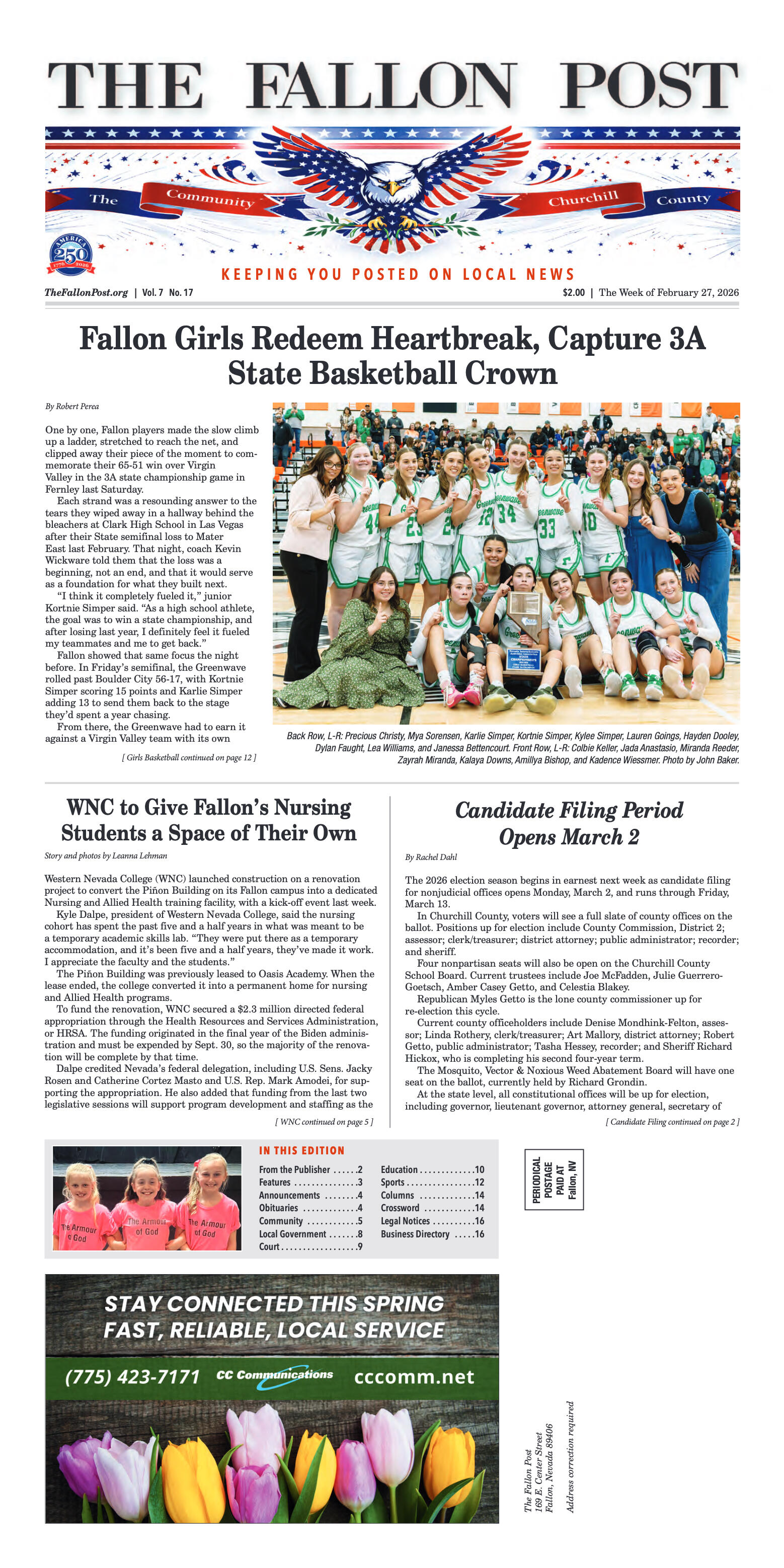
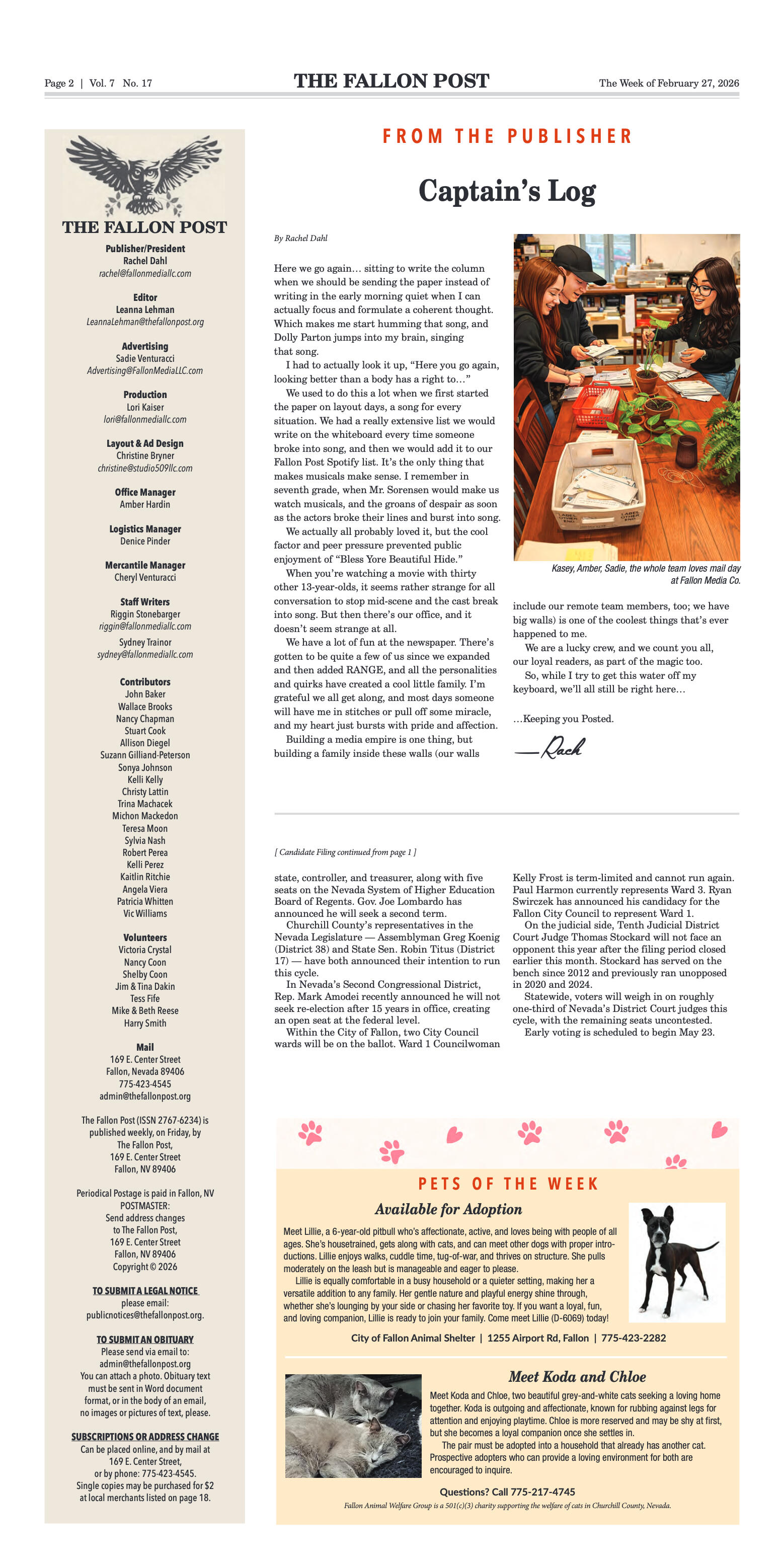
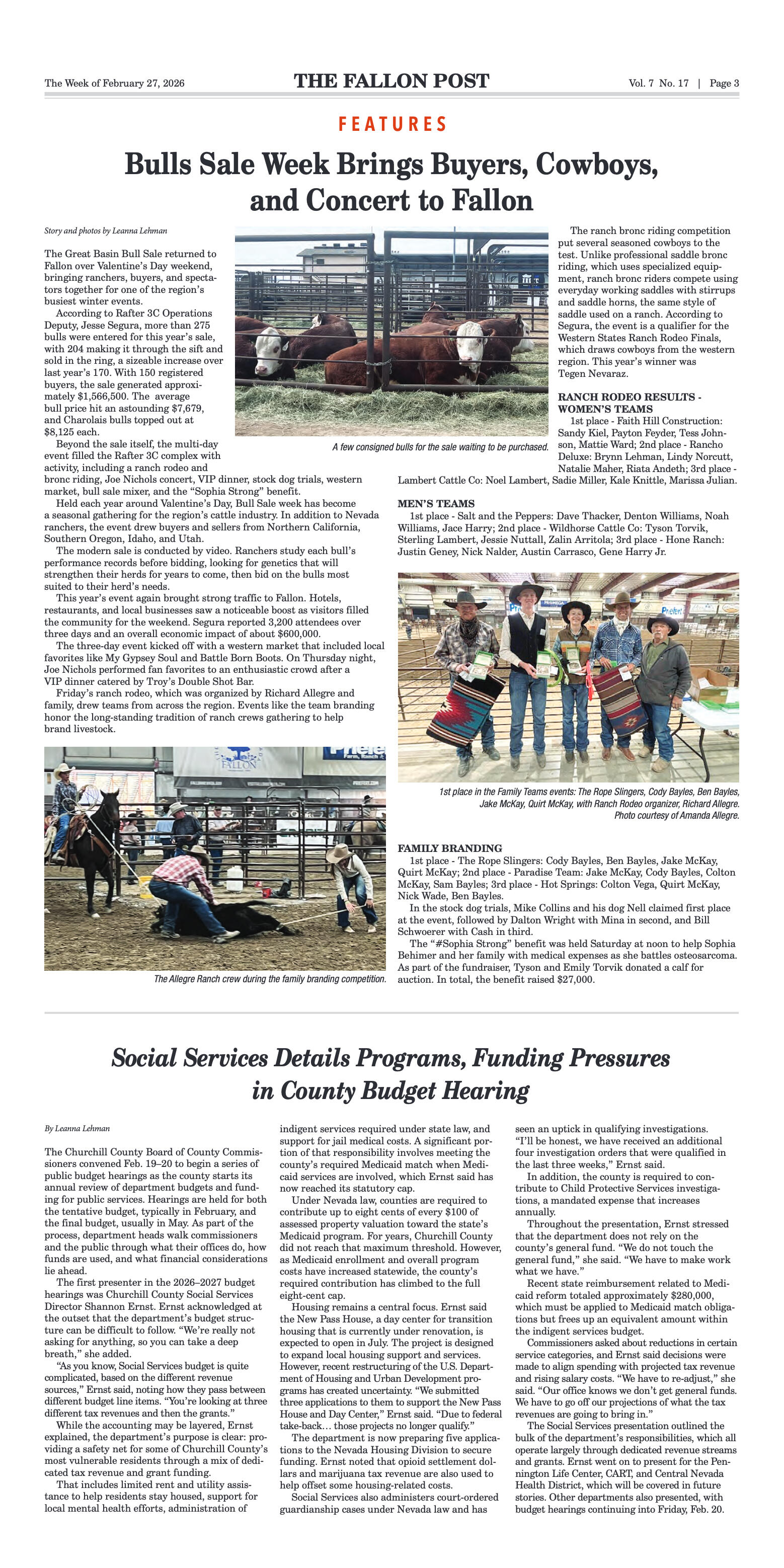
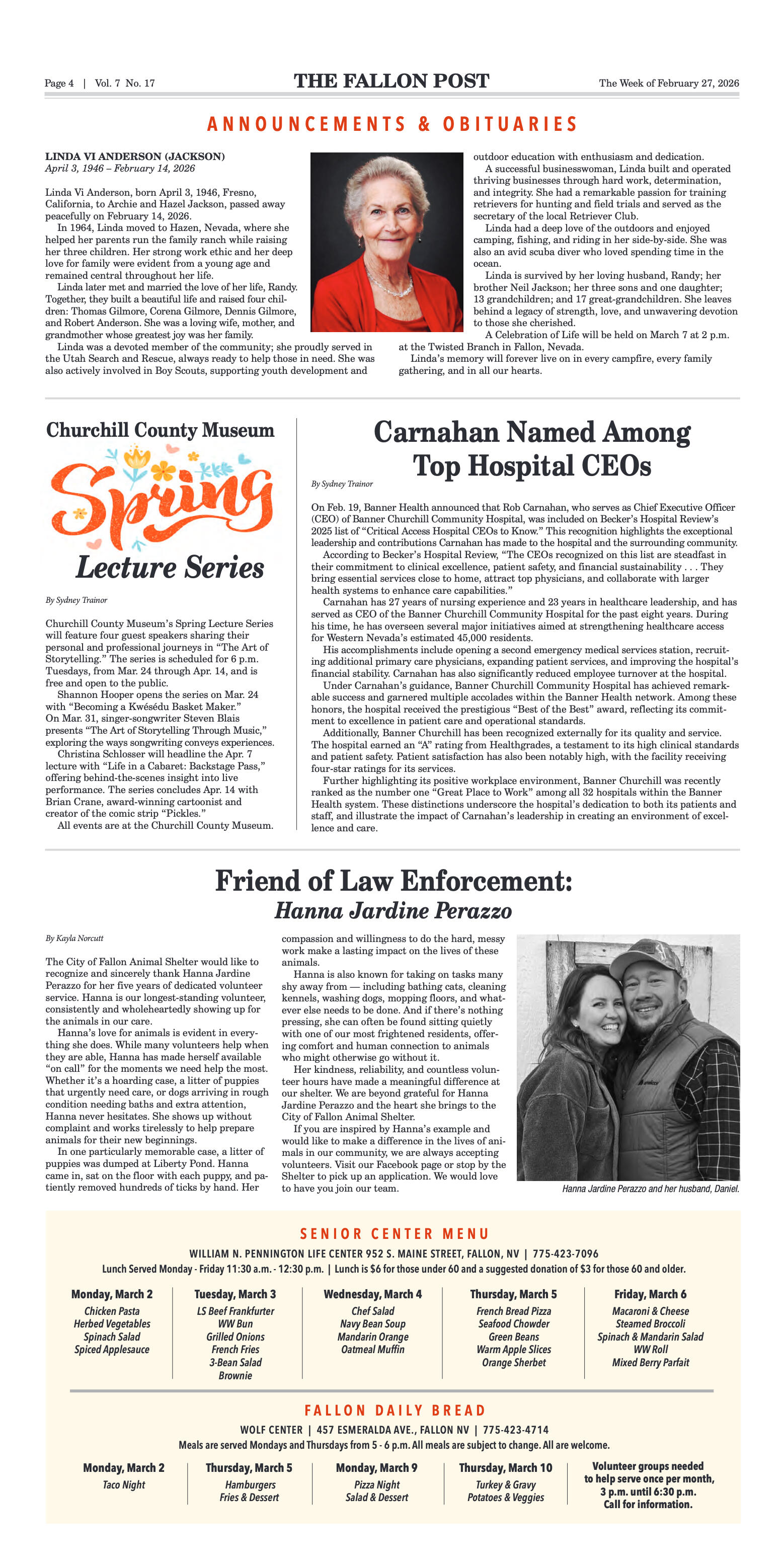
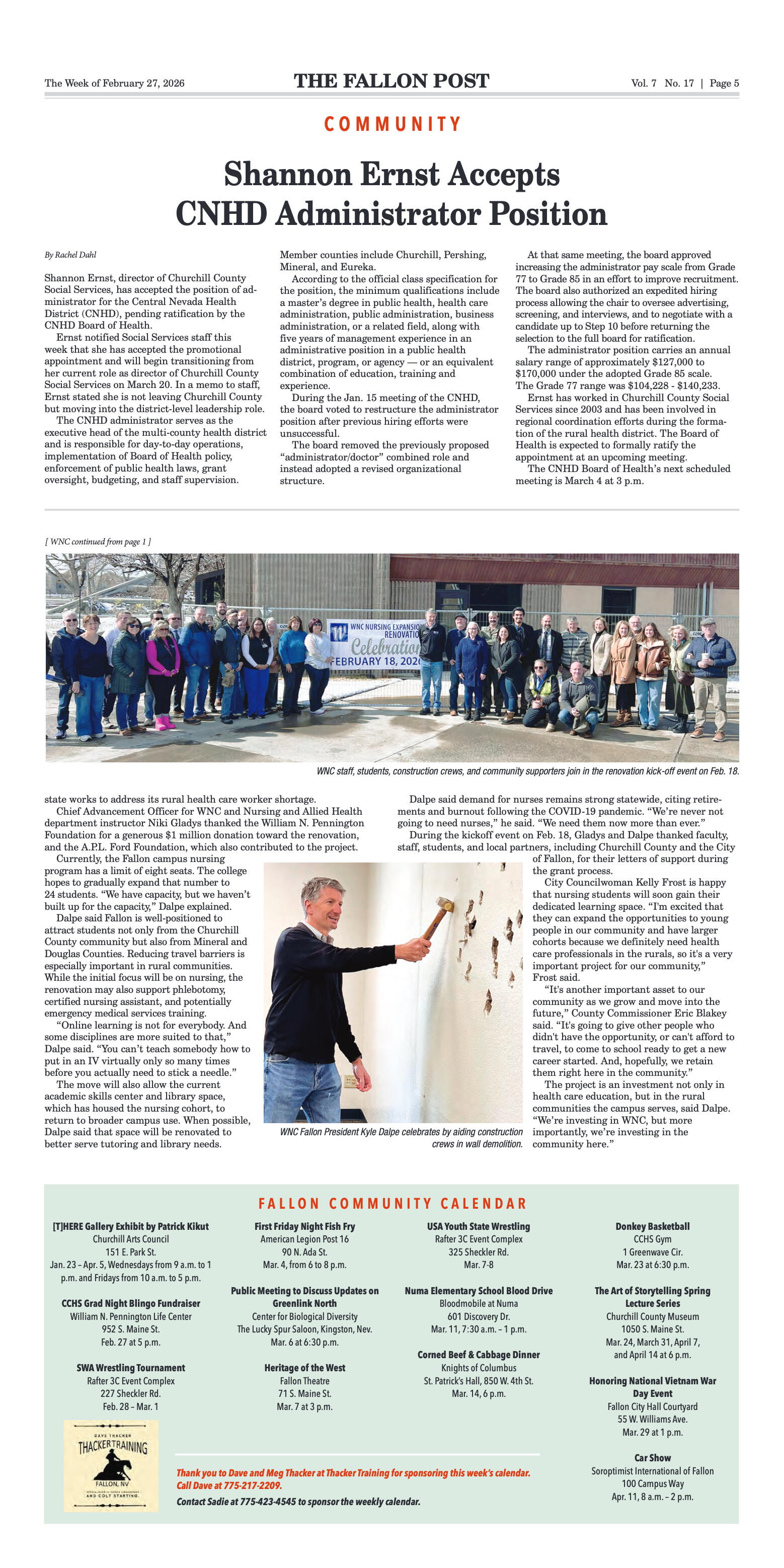
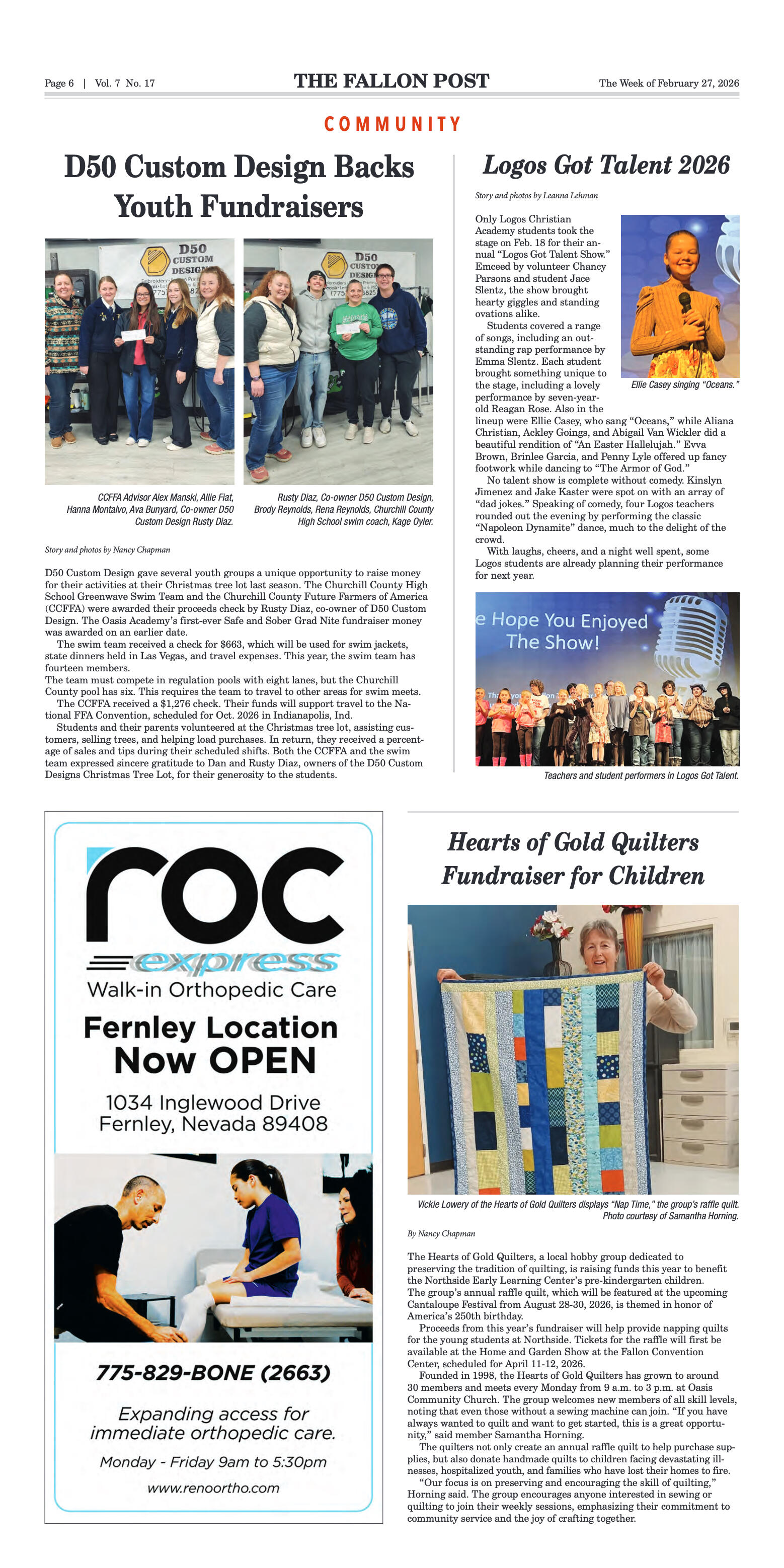
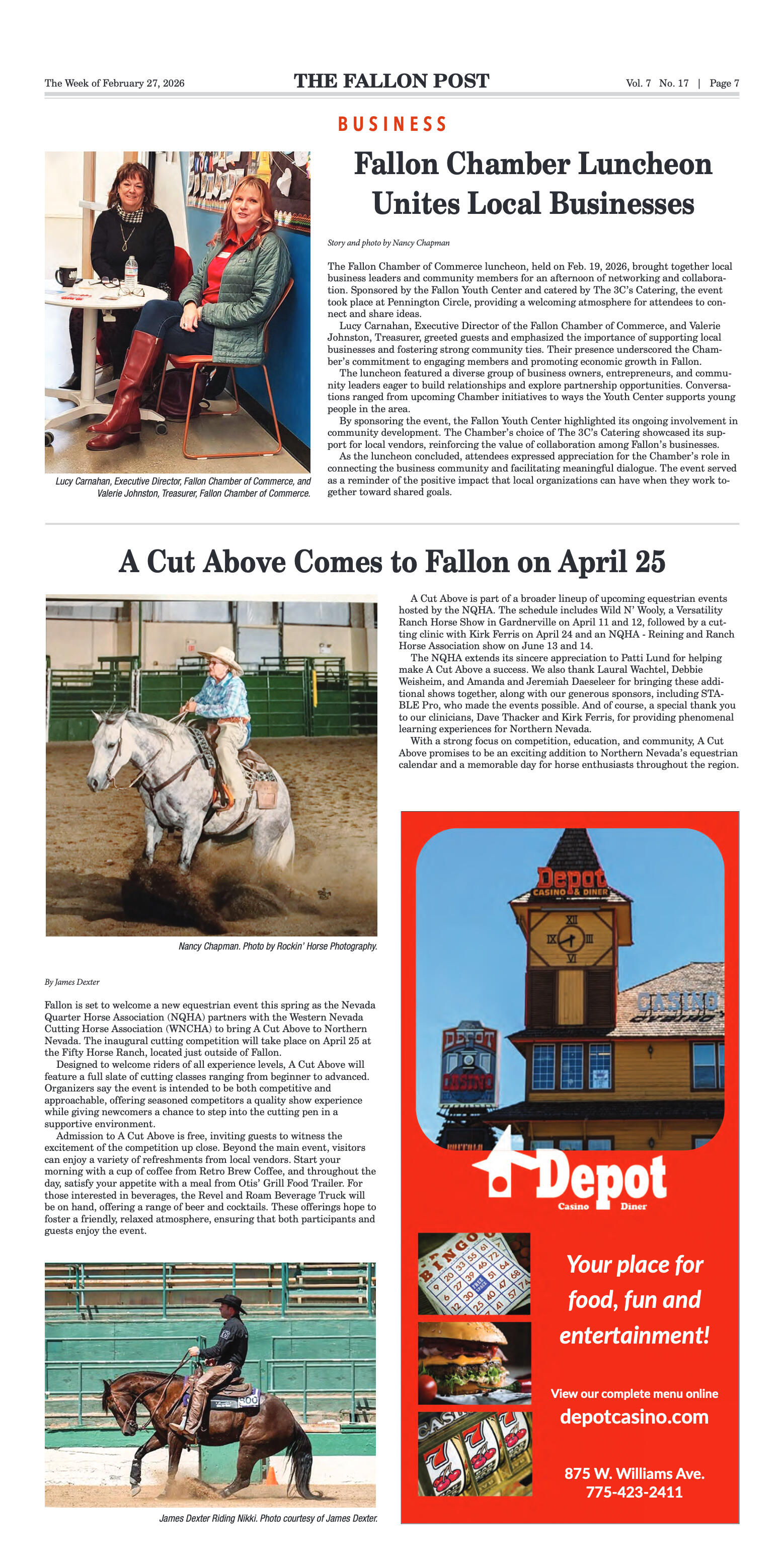
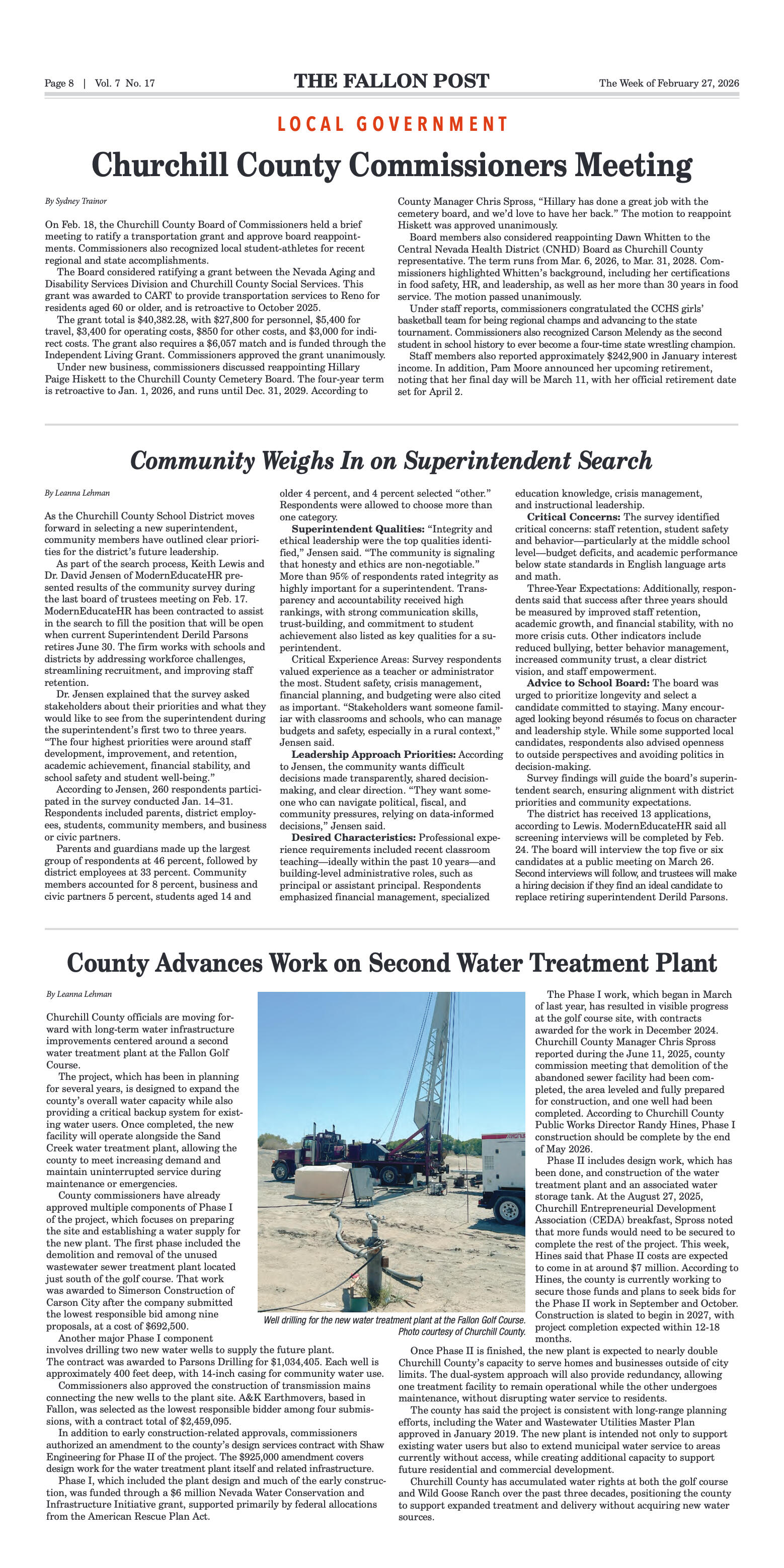
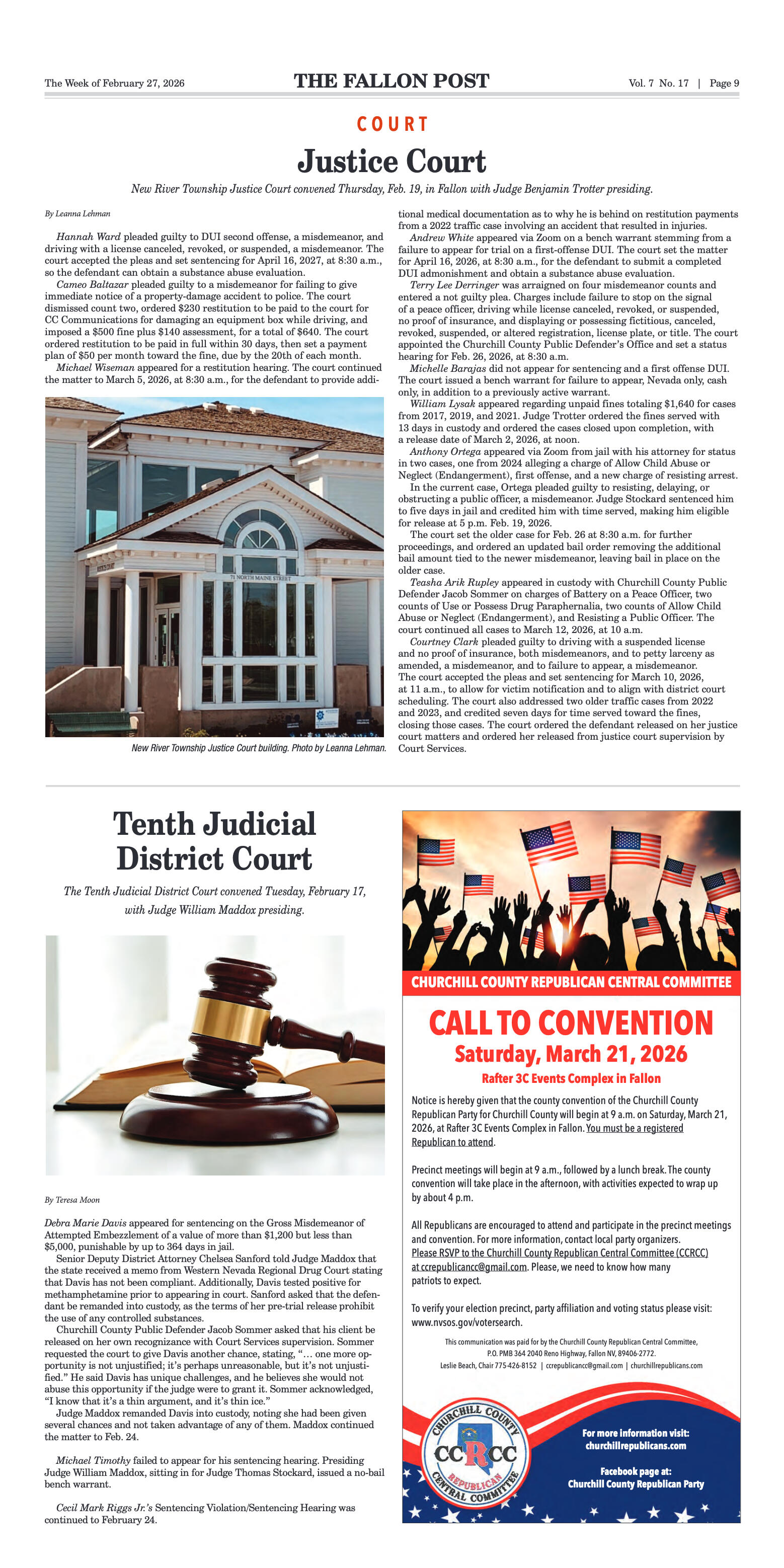
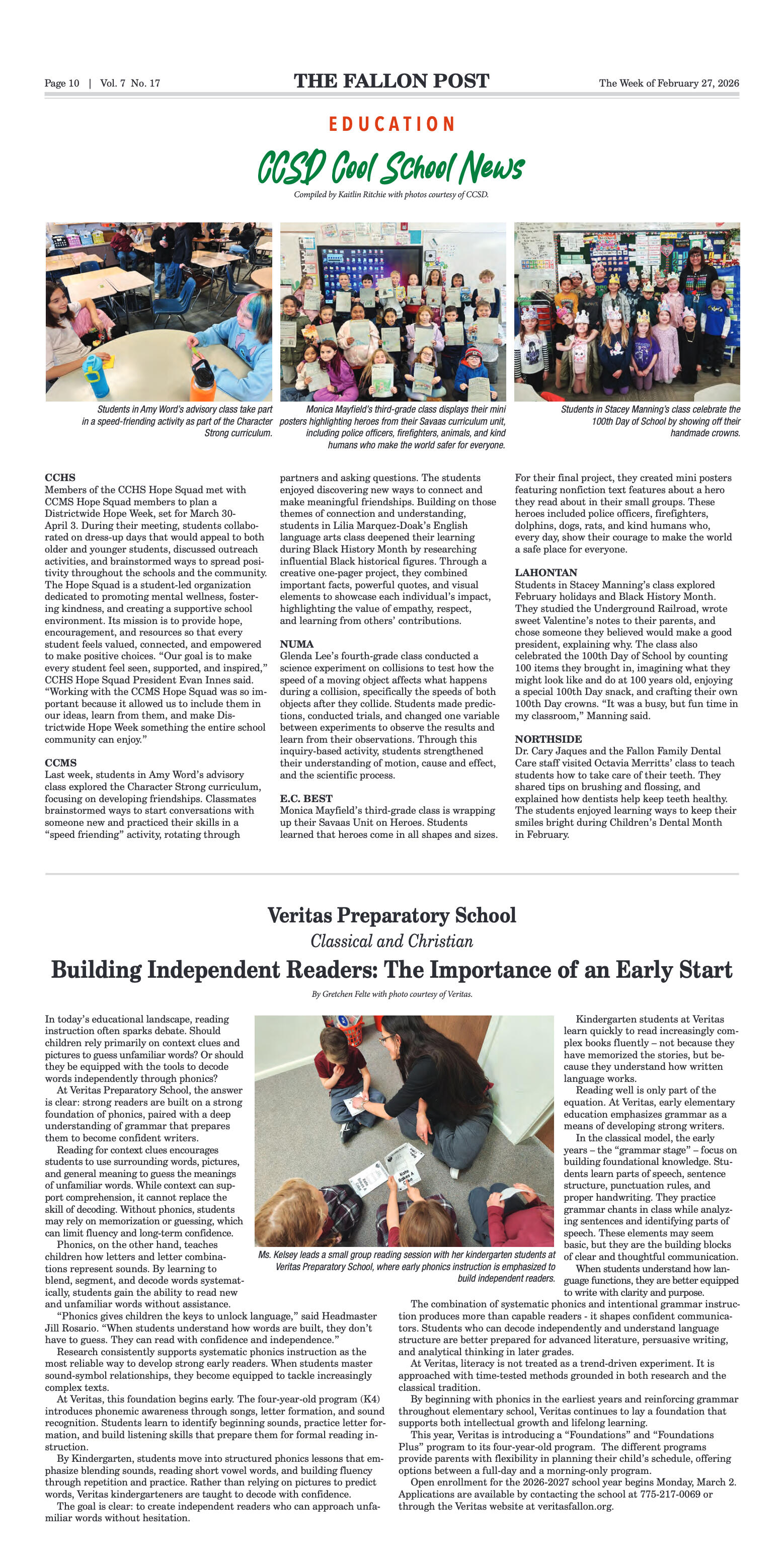
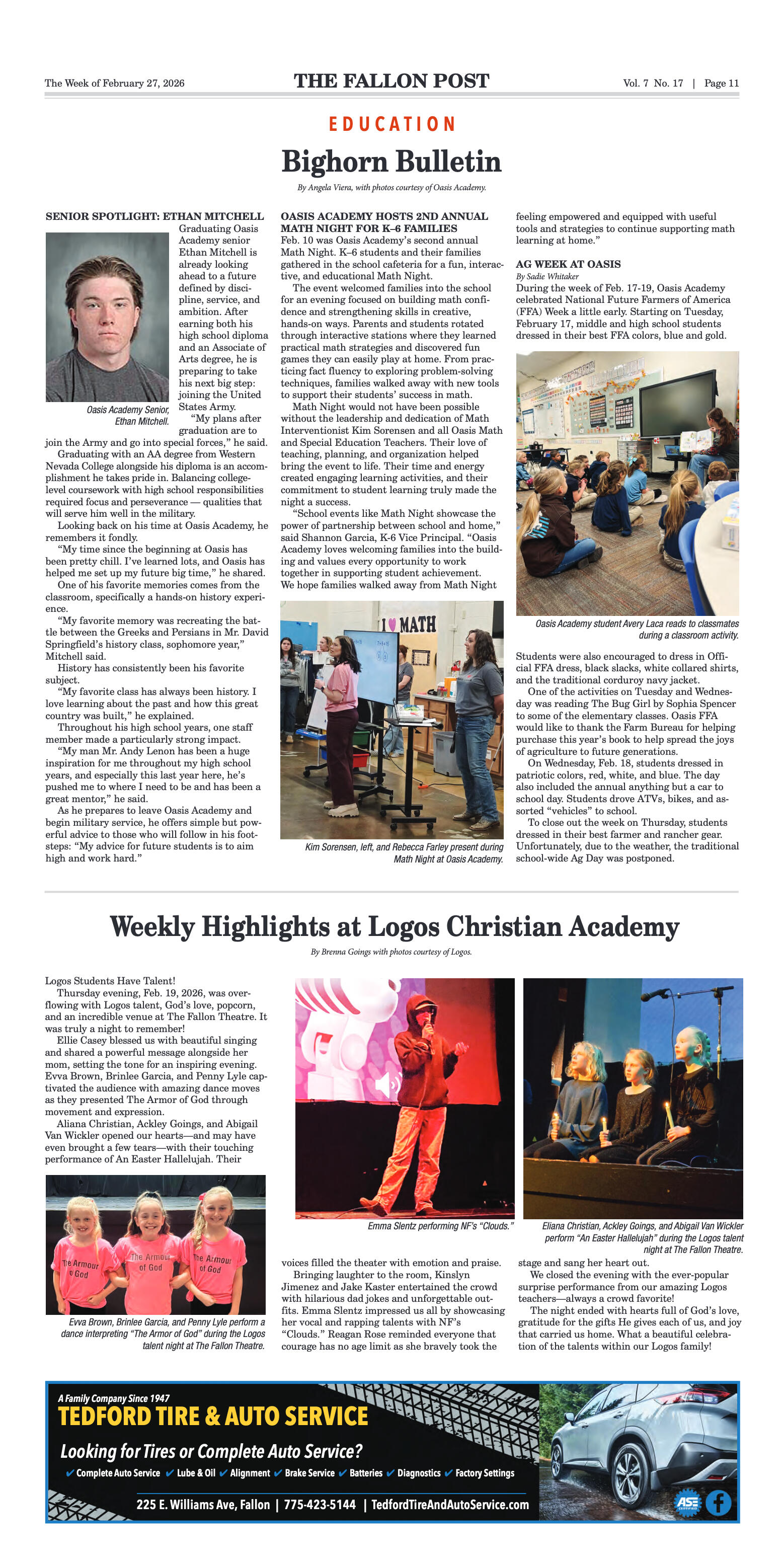
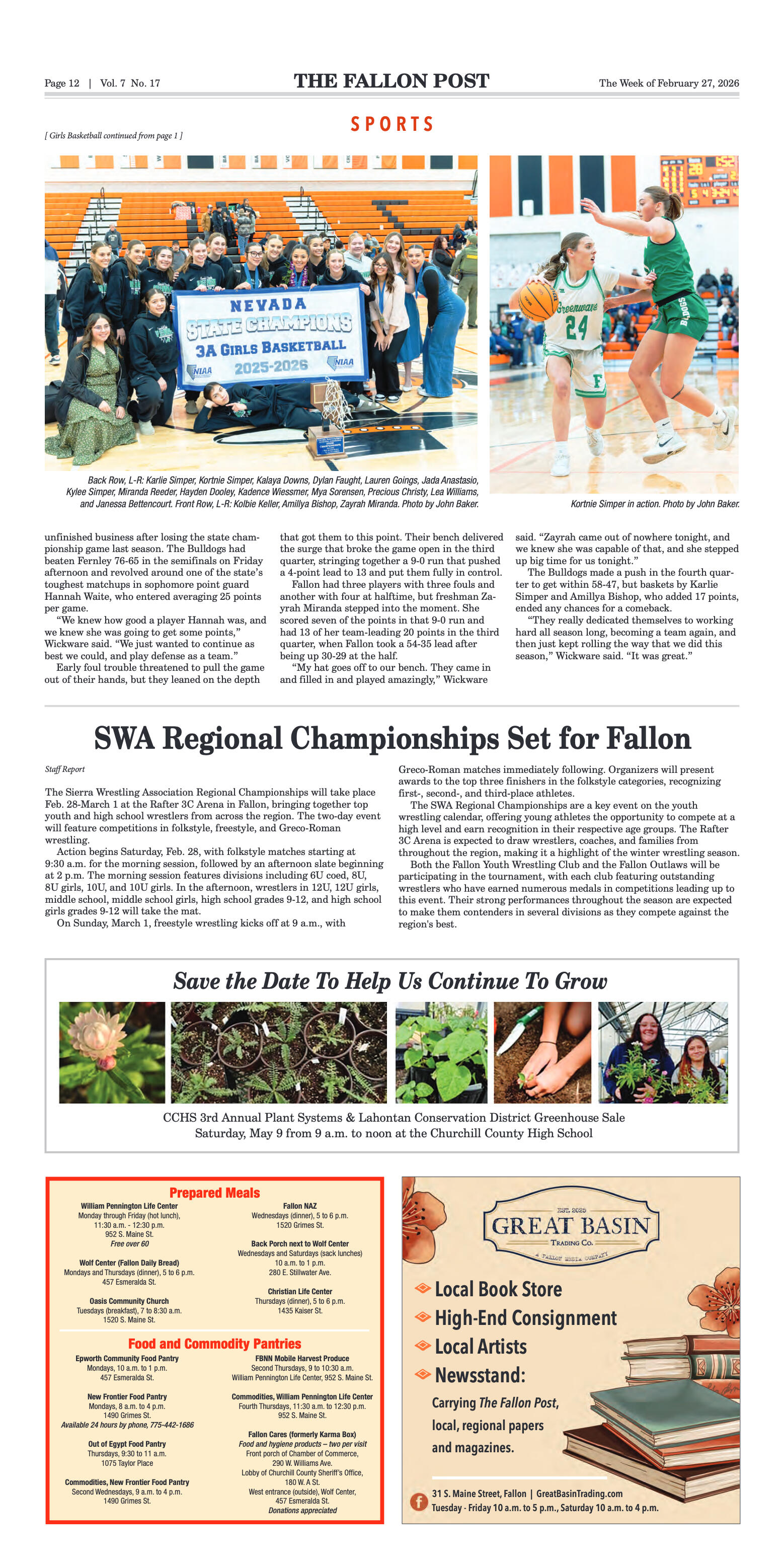
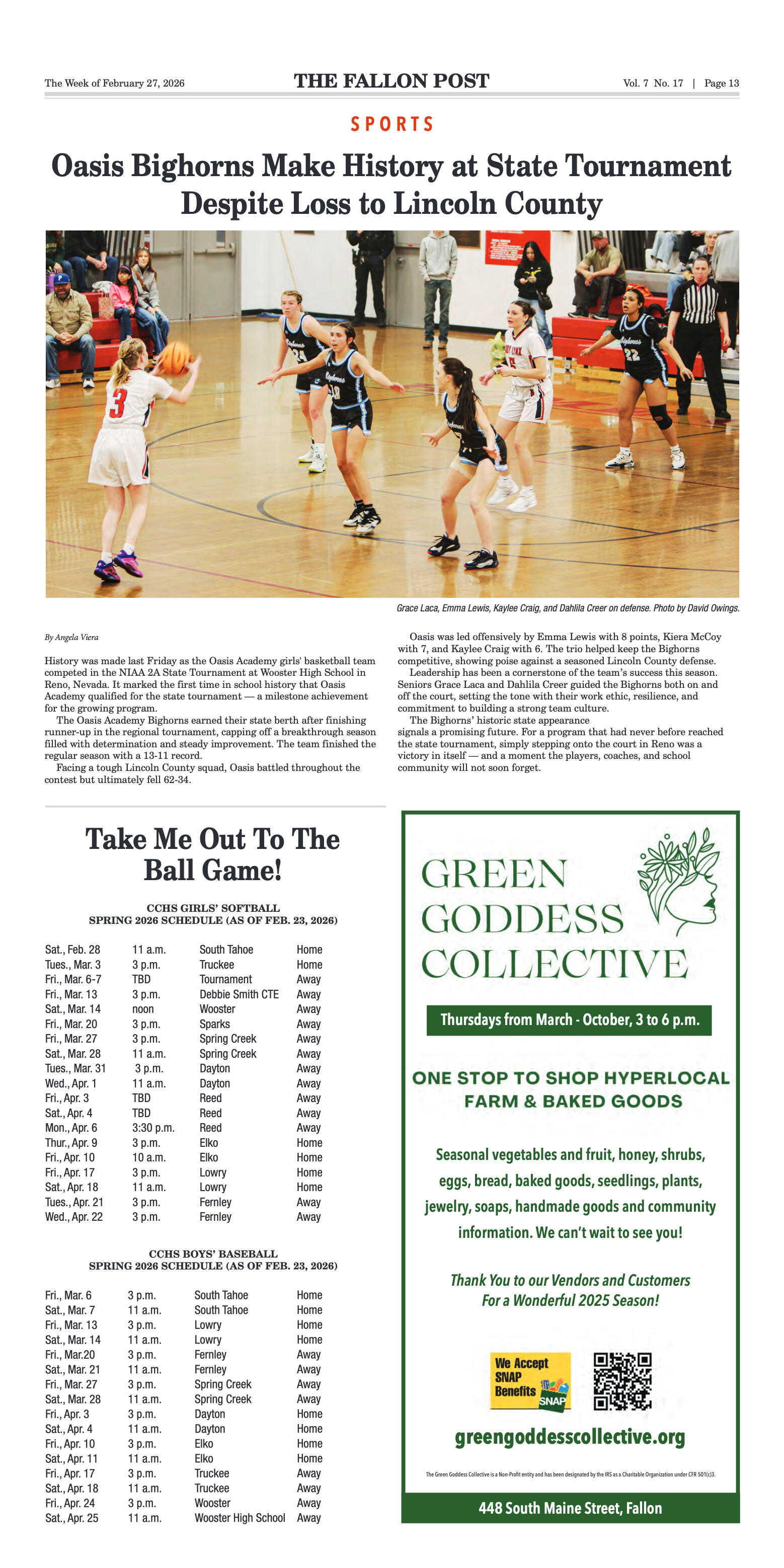
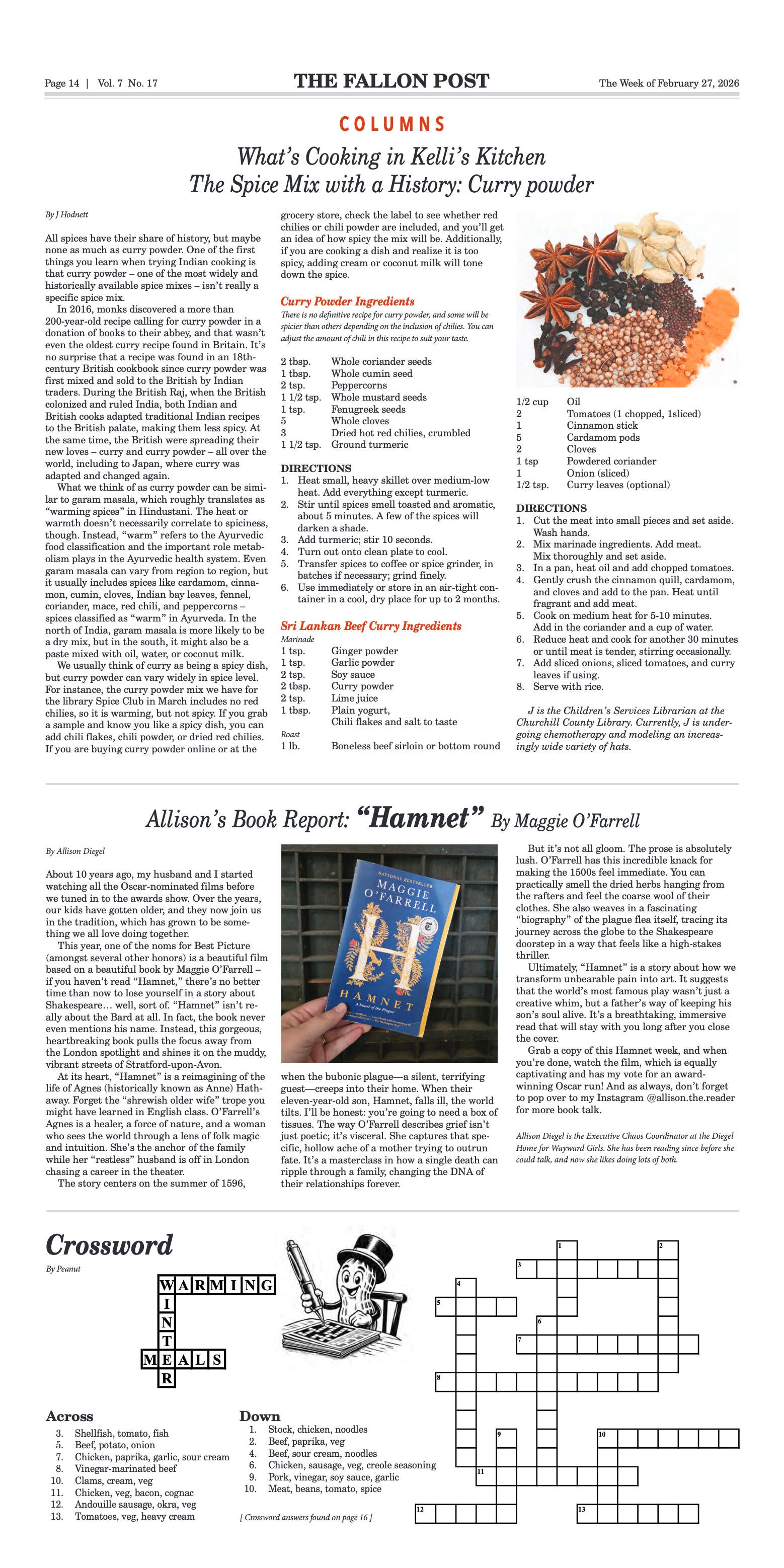
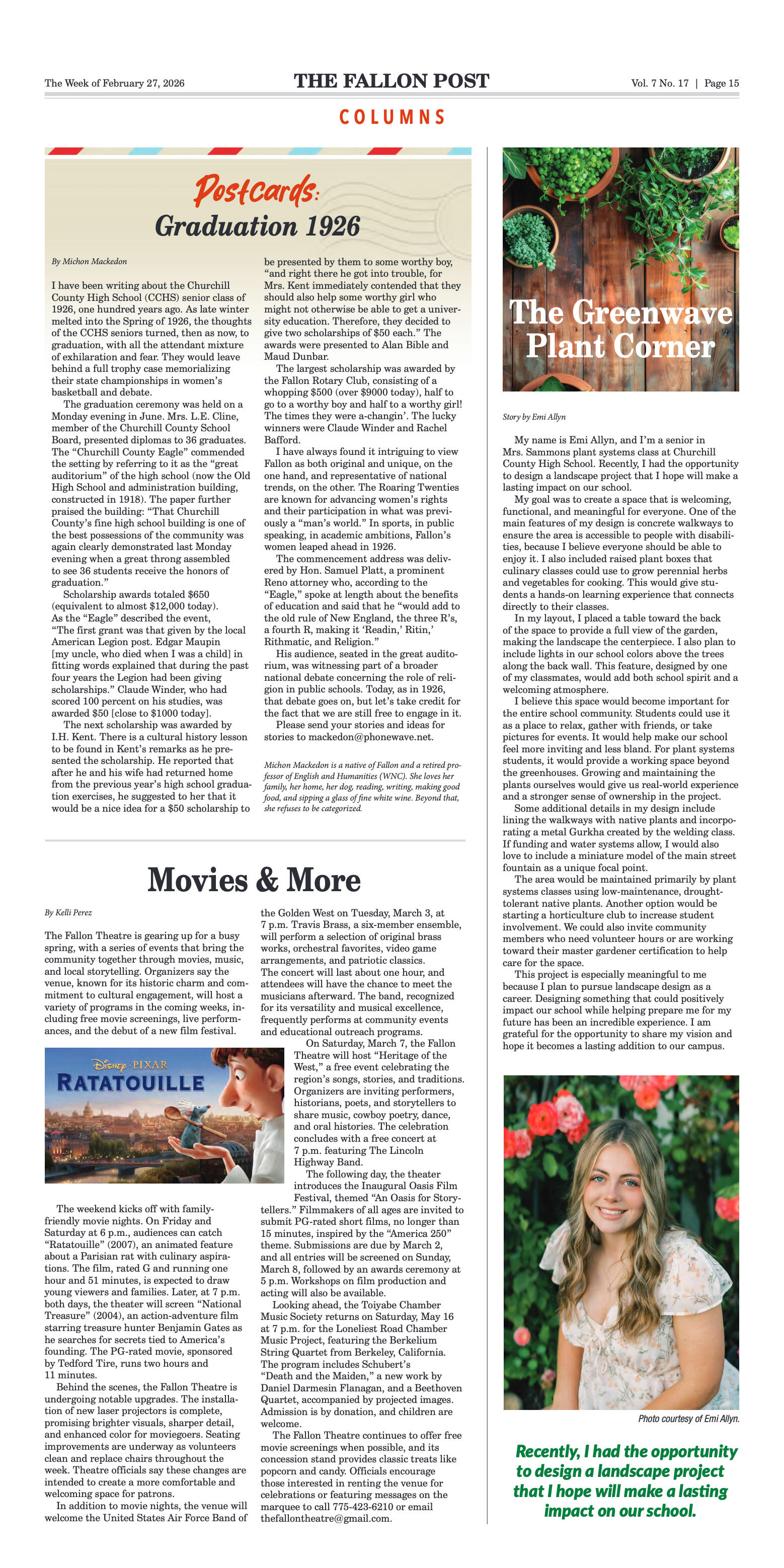
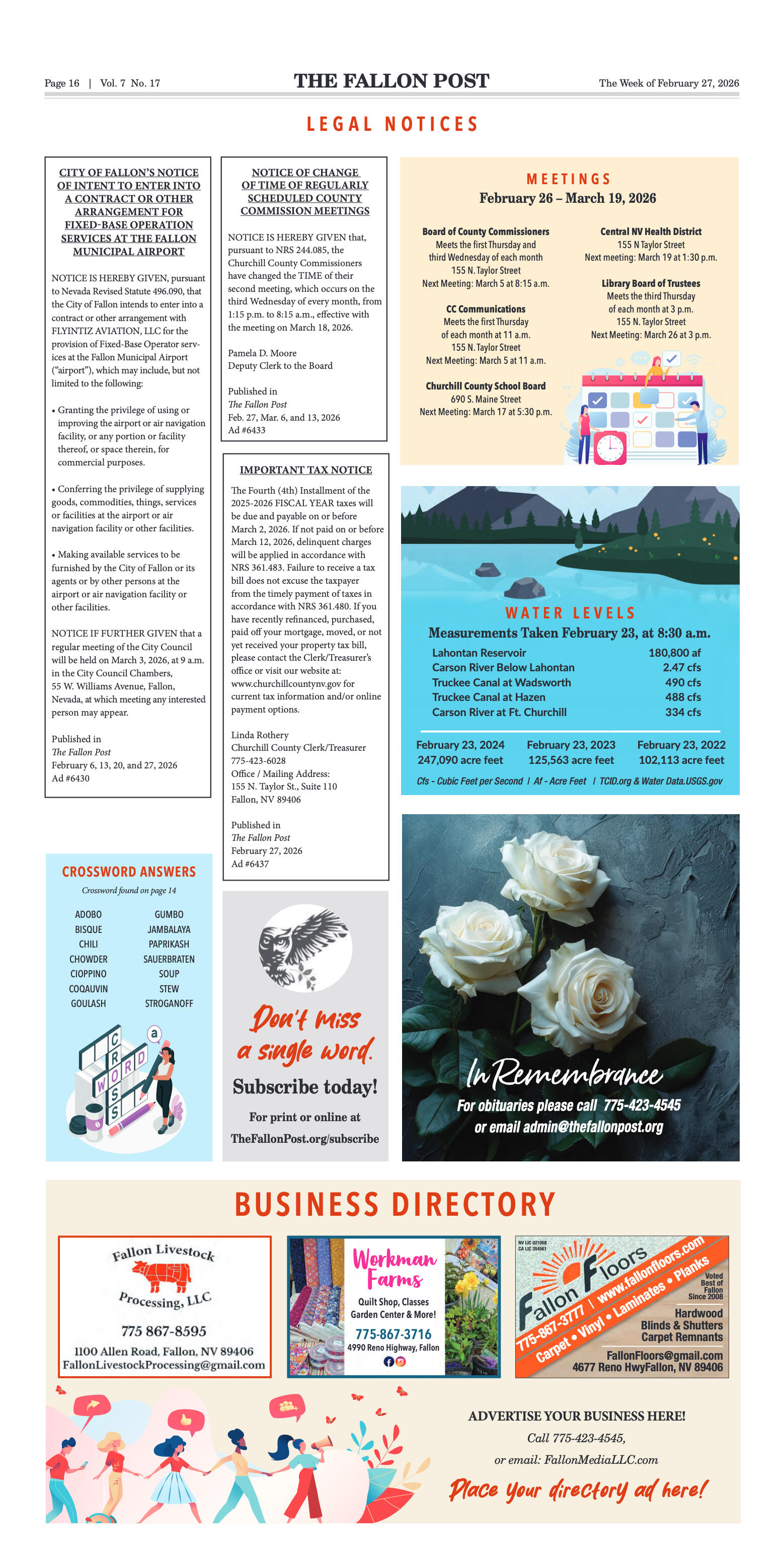


























Comment
Comments